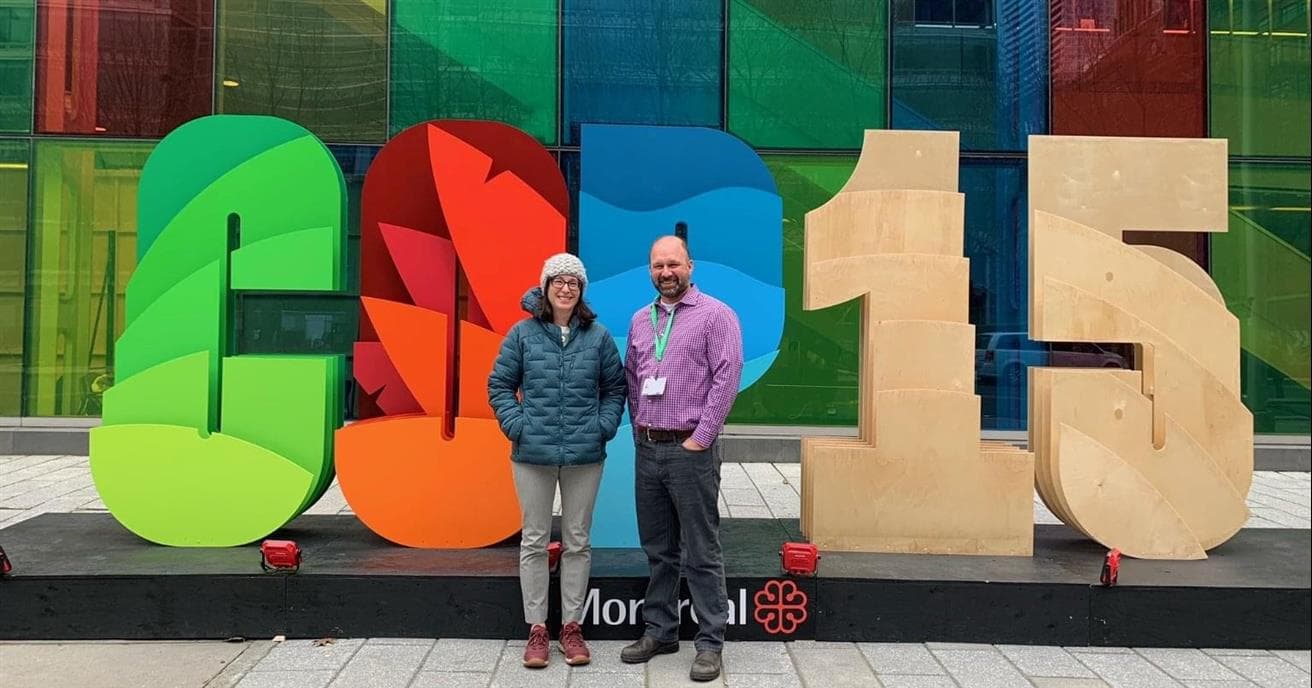“The focus has been on climate change for so long, and rightly so, that I often joke that it takes up all the air in the room,” Mark says with a grin. “Given that, we’ve always recognized that there are many pieces to the puzzle. So, while climate change has been the priority, biodiversity is another piece that’s needed to solve the whole puzzle.”
Mark noticed that business having a role in achieving biodiversity targets was a consistent theme throughout COP15 and that industries, including Canada’s energy sector, are increasingly being seen as a part of the solution.
The sheer number of people converging in Montréal to discuss the challenges and opportunities with biodiversity, and negotiating of a global biodiversity framework, is a testament to the level of concern across the globe.
“There were more people there with foreign accents than not,” adds Mark. “I sat at a table with someone from Cameroon, someone from Turkey and the Chief Sustainability Officer for IKEA, which is a Swedish company. It was interesting to get to work and converse with people from around the globe without needing a passport.”
The term “nature positive” came up more than a few times at COP15, which begs the question: What does it mean and how can companies like Suncor achieve it?
According to Mark, there are no easy answers to this and that’s partially due to the recent emergence of the term and complexity of the work involved.
“Will it even be called ‘nature positive’ in a few years?” Mark wonders aloud. “There’s still so much understanding needed. Take the boreal forest, a very biodiverse place in Canada where Suncor’s oil sands operations are located, for example. How do we define biodiversity there? Is a caribou more ‘important’ than a Canadian toad or the fungus that lives within the roots of a tree?”
It's a challenge Mark and Suncor are ready for. But Mark cautions that it’s going to take time. Suncor has made progress in this area, and continues to do so as it works with organizations such as the Alberta Conservation Association and as a member of Ipieca—an international association dedicated to advancing environmental and social performance in the energy sector.
“At the end of the day, we’re trying find a way to balance our disturbance with reclamation, conservation and protection,” he says. “We are partly there in terms of our disclosure reporting and the frameworks around that; it will all be important and be a big part of our work as we work toward contributing positively to nature, but I didn’t come home with the answers. What I did come home with are more challenges, greater interest and optimism.”

.jpeg?bc=white&mw=768&modified=20230202151614&hash=84701781CA14A1F5520041CE71BEF532)


